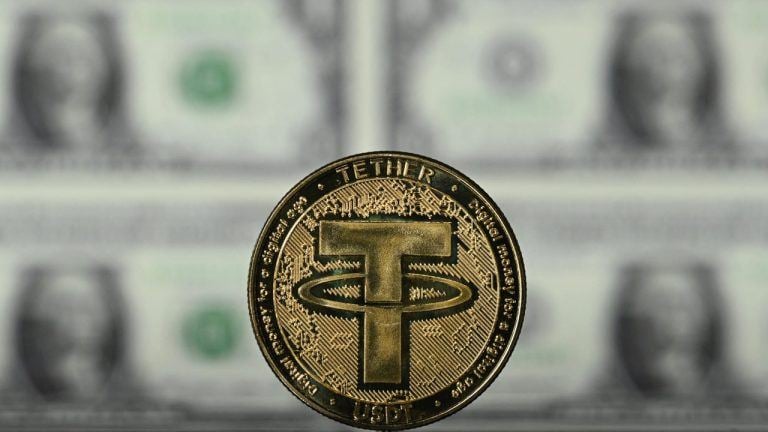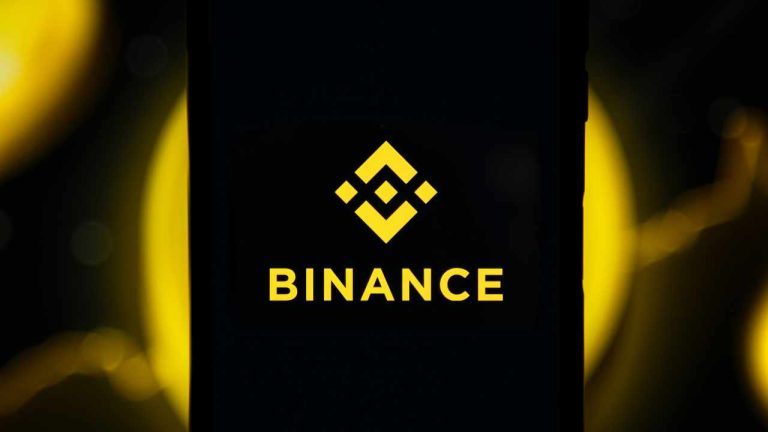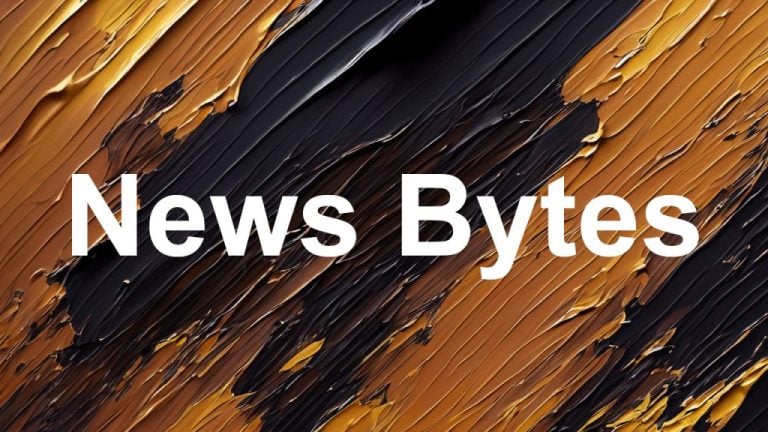 TD Bank, one of the largest financial institutions in the U.S., has agreed to pay a record $3 billion penalty, the largest ever under the Bank Secrecy Act, after pleading guilty to felony charges. The bank is the largest in U.S. history to plead guilty to Bank Secrecy Act program failures and the first to […]
TD Bank, one of the largest financial institutions in the U.S., has agreed to pay a record $3 billion penalty, the largest ever under the Bank Secrecy Act, after pleading guilty to felony charges. The bank is the largest in U.S. history to plead guilty to Bank Secrecy Act program failures and the first to […]

Tether says it aided in the recovery of the stolen crypto by freezing the scammers wallets, which the FBI then seized.
Authorities have seized over $6 million worth of cryptocurrency from wallets connected to Southeast Asia based scammers targeting United States citizens with confidence investment schemes.
On Sept. 26, the US Attorney’s Office for the District of Columbia reported the fraud saw “one or more individuals” lose millions of dollars after being misled into believing they were investing in legitimate crypto enterprises.
The FBI traced the stolen funds on the blockchain and located multiple crypto wallet addresses connected to the scam, which still held over $6 million of victims’ digital assets.
 Tether, the world’s largest stablecoin issuer, reportedly played a crucial role in a joint operation led by Dutch and U.S. law enforcement agencies to dismantle two cryptocurrency exchanges suspected of money laundering. The operation resulted in the seizure of €7 million ($7.8M) in crypto and the freezing of illicit wallets. Tether Works With Law Enforcement […]
Tether, the world’s largest stablecoin issuer, reportedly played a crucial role in a joint operation led by Dutch and U.S. law enforcement agencies to dismantle two cryptocurrency exchanges suspected of money laundering. The operation resulted in the seizure of €7 million ($7.8M) in crypto and the freezing of illicit wallets. Tether Works With Law Enforcement […] A Nigerian national has been sentenced to five years in federal prison for his role in a massive darknet fraud scheme that intended to cause over $6 million in losses, according to the U.S. Department of Justice (DOJ). Using various online aliases, Kaura led a global network selling stolen payment card data, using cryptocurrencies like […]
A Nigerian national has been sentenced to five years in federal prison for his role in a massive darknet fraud scheme that intended to cause over $6 million in losses, according to the U.S. Department of Justice (DOJ). Using various online aliases, Kaura led a global network selling stolen payment card data, using cryptocurrencies like […] India has achieved a high level of technical compliance with Financial Action Task Force (FATF) standards, addressing illicit finance, money laundering, and terrorist financing. In a joint assessment with regional bodies, the FATF praised India’s progress but pointed out areas needing improvement, especially in regulating the non-financial sector and virtual asset providers. The country was […]
India has achieved a high level of technical compliance with Financial Action Task Force (FATF) standards, addressing illicit finance, money laundering, and terrorist financing. In a joint assessment with regional bodies, the FATF praised India’s progress but pointed out areas needing improvement, especially in regulating the non-financial sector and virtual asset providers. The country was […] Crypto exchange Binance’s security team has recovered or frozen over $73 million in stolen user funds so far this year, surpassing the $55 million recovered in 2023. This achievement highlights the company’s commitment to improving cryptocurrency security. Binance Recovers $73 Million in Stolen User Funds Crypto exchange Binance announced on Wednesday that its security team […]
Crypto exchange Binance’s security team has recovered or frozen over $73 million in stolen user funds so far this year, surpassing the $55 million recovered in 2023. This achievement highlights the company’s commitment to improving cryptocurrency security. Binance Recovers $73 Million in Stolen User Funds Crypto exchange Binance announced on Wednesday that its security team […] Former FTX executive Ryan Salame was sentenced to seven and a half years in prison by Judge Lewis Kaplan of the U.S. District Court for the Southern District of New York after pleading guilty to criminal charges, including engaging in an unlawful political influence campaign and operating an unlicensed money transmitting business. Salame, who once […]
Former FTX executive Ryan Salame was sentenced to seven and a half years in prison by Judge Lewis Kaplan of the U.S. District Court for the Southern District of New York after pleading guilty to criminal charges, including engaging in an unlawful political influence campaign and operating an unlicensed money transmitting business. Salame, who once […] According to a report by South Korean news publication KBS, Do Kwon, the co-founder of Terraform Labs, has converted a “large part” of his assets into bitcoin. Prosecutors in South Korea believe that Kwon’s purported bitcoin stash was transferred to an international exchange. Report Says Do Kwon Allegedly Sold a ‘Large Part’ of His Assets […]
According to a report by South Korean news publication KBS, Do Kwon, the co-founder of Terraform Labs, has converted a “large part” of his assets into bitcoin. Prosecutors in South Korea believe that Kwon’s purported bitcoin stash was transferred to an international exchange. Report Says Do Kwon Allegedly Sold a ‘Large Part’ of His Assets […] Sam Bankman-Fried (SBF), the former CEO of FTX, now faces a 13-count indictment as U.S. officials have added new charges. One of the new charges alleges that SBF leveraged $40 million to influence “one or more Chinese government officials.” Details of the Bribery Charges Against Sam Bankman-Fried Sam Bankman-Fried (SBF), the co-founder and former CEO […]
Sam Bankman-Fried (SBF), the former CEO of FTX, now faces a 13-count indictment as U.S. officials have added new charges. One of the new charges alleges that SBF leveraged $40 million to influence “one or more Chinese government officials.” Details of the Bribery Charges Against Sam Bankman-Fried Sam Bankman-Fried (SBF), the co-founder and former CEO […]
A “close look” is being taken at money laundering and terror financing laws by FinCEN as it asked banking sector players for feedback on DeFi’s crime risks.
A United States financial regulator is looking to gain feedback from the banking industry about how decentralized finance (DeFi) may affect the bureau's efforts to stop financial crime.
The Financial Crimes Enforcement Network (FinCEN) said it is “looking carefully” at DeFi, while the agency’s acting director, Himamauli Das, said the digital asset ecosystem and virtual currencies are a “key priority area” for the agency.
Das gave prepared remarks on Dec. 6 at the American Bankers Association’s Financial Crimes Enforcement Conference.
The acting director added the agency is “taking a close look” at its Anti-Money Laundering (AML) and Combating the Financing of Terrorism (CFT) framework for cryptocurrencies and digital assets to decide if “additional regulations or guidance are necessary.”
“We are engaging with relevant U.S. government stakeholders in this effort,” said Das. “We welcome engagement with industry — including the banking community — to better understand your assessment of the vulnerabilities and risks.”
In particular, the regulator was concerned at DeFi’s “potential to reduce or eliminate the role of financial intermediaries” that are critical to its AML and CFT efforts.
Das said it recognizes DeFi “will continue to impact the financial services industry” and the agency will need to mitigate the “illicit finance and national security risks posed by the misuse of digital assets.”
Related: Terrorists still predominantly use cash over crypto: UN officials
FinCEN’s evaluation of its AML and CFT frameworks is part of the Executive Order on Ensuring Responsible Development of Digital Assets issued by United States President Joe Biden on Mar. 9.
A result of the Executive Order was the U.S. Treasury Department’s “Action Plan to Address Illicit Financing Risks of Digital Assets.”
Among other priority actions, the plan recommended increased private sector engagement through “the publication of official documents, discussions, and Treasury programs that enable public‐private and private‐private information sharing.”